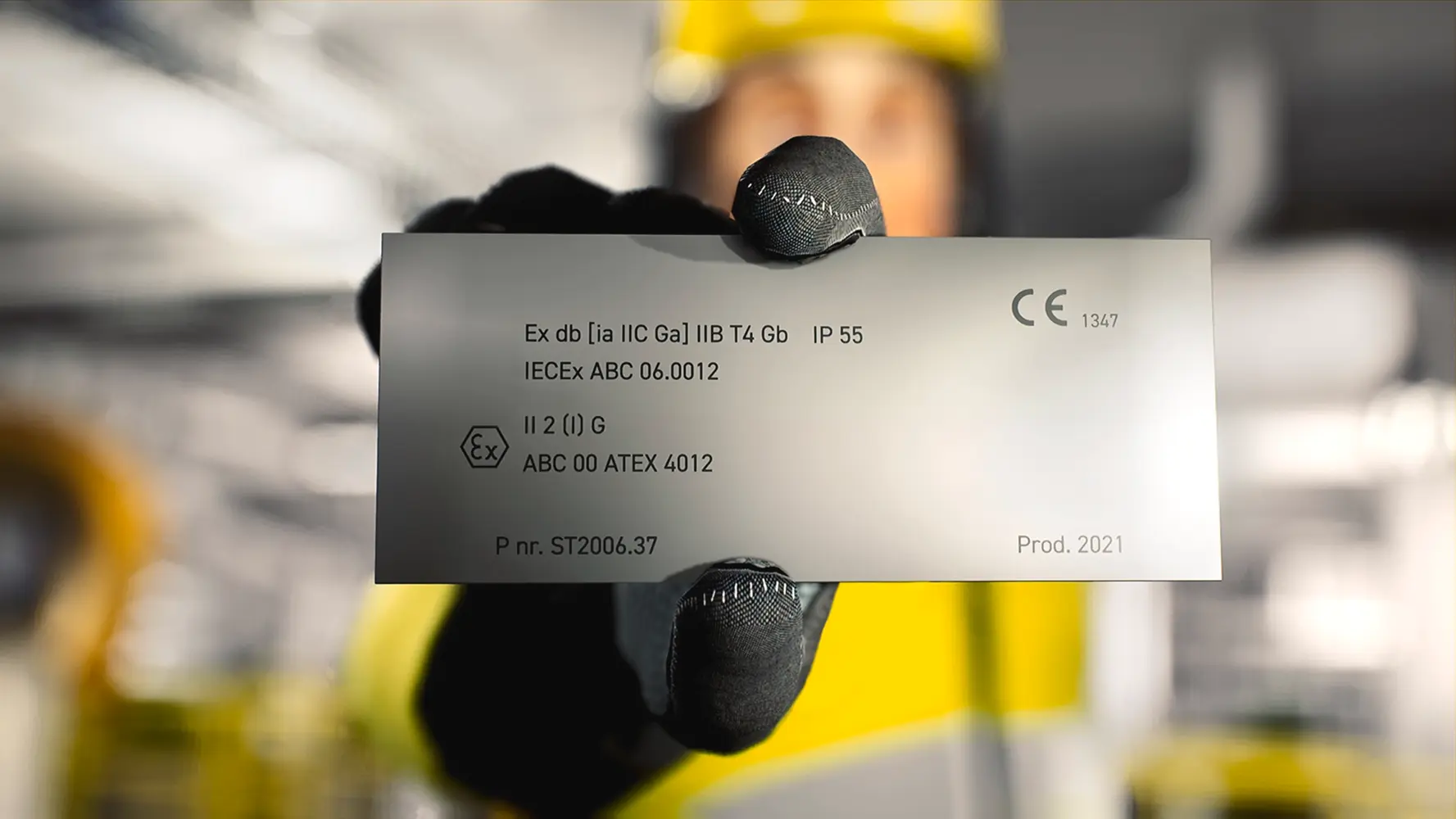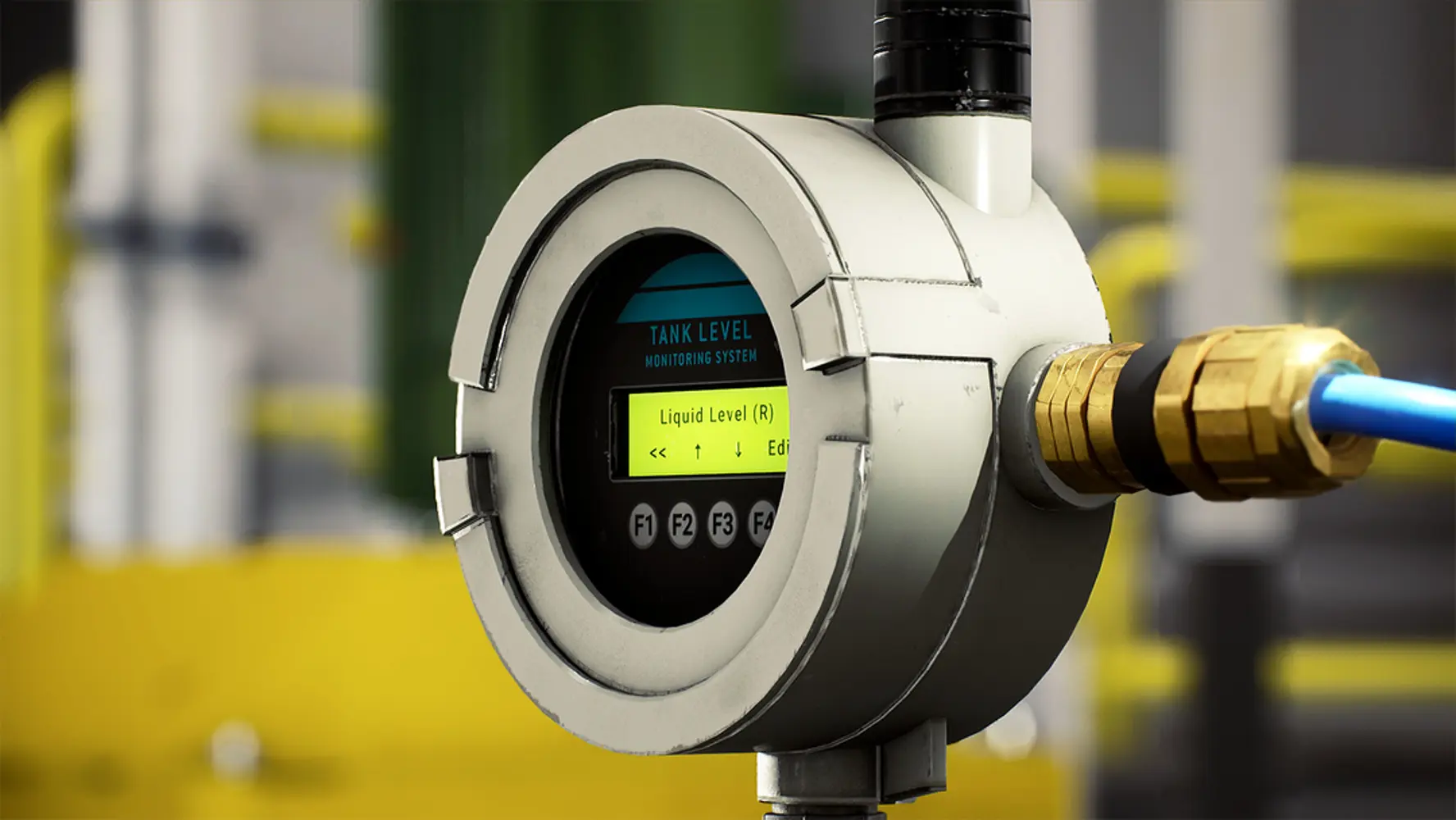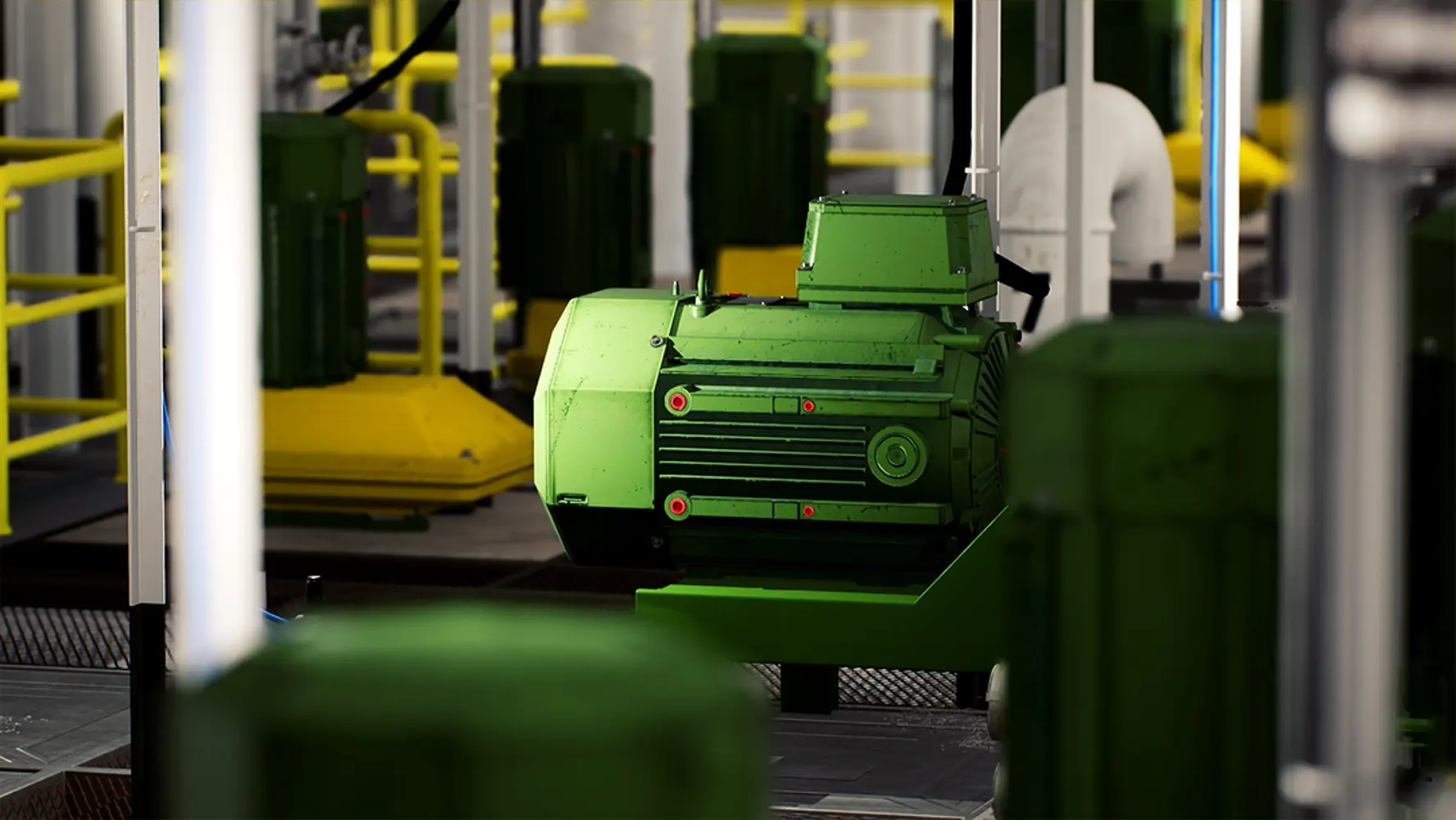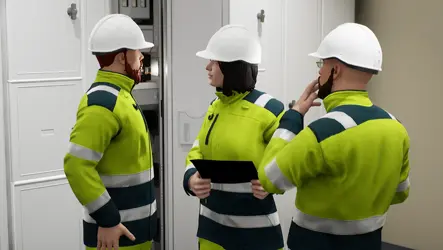IECEx and ATEX marking of electrical equipment
Certified Ex equipment has a marking plate that includes details about the equipment's explosion protection and the area in which the equipment may be used. Can you interpret these codes?





This course assumes that you already know about gas and dust groups and about zones. The course covers the applicable marking standards and directives within the EU and the EEA.
Interpreting the markings on Ex equipment can be demanding. The plate can carry codes for both IEC standards and the ATEX equipment directive. So what do all these letters and numbers really mean? How can you be sure the equipment has sufficient explosion protection to be installed in the necessary zone? This information is critical if you need to select and install equipment in a potentially hazardous area.
The goal
Having completed this course, participants will have gained good insight into how electrical equipment is Ex-marked, and what the different markings mean. Participants will learn to distinguish between the different types of markings and make good decisions when selecting euipment to use in an installation in a potentially hazardous area.
The target group
Electrotechnical and automation personnel and other personnel planning or working on electrical installations in potentially hazardous areas within the EU/EEA. The course will also be useful for manufacturers and suppliers of Ex equipment within the EU/EEA.
The topics covered
- How to read a marking plate
- Protection types for electrical equipment
- Markings that follow the IEC standard
- Certification references
- A brief introduction to marking mechanical equipment
- Marking associated equipment and associated apparatus
- A short history of markings
- A summary of markings given by the ATEX directive
- Types of ATEX markings
Technical information
System requirements
This course can be completed on a computer, tablet, or smartphone – whenever and wherever it suits you. To ensure the best possible experience, we recommend using an up-to-date web browser (such as Google Chrome, Microsoft Edge, Safari, or Firefox) and a stable internet connection with a minimum speed of 5 Mbps. If you are using a mobile network, a 4G connection or higher is recommended.
Course manual
No, a course manual is not included for this course.
Do you have questions?
We understand how important proper training is to ensure a safe work environment, and we are dedicated to delivering the most effective training in electrical safety.
If you have questions about this product or want more information about our offerings, our experts are here to help you find the right course for you or your team.
Contact us
Related courses
At Trainor, we create custom-designed, animated films to create engaging content that provides you with exceptional learning experiences. In a world that demands increasing competence, efficiency, and sustainability, we offer high-quality digital training that meets industry needs and expectations and engages professionals worldwide.
If you have questions about this product or want more information about our offerings, our experts are here to help you find the right course for you or your team.
Read moreWith the Trainor app, you can take eLearning courses directly from your mobile or tablet, even if you don't have coverage. The app is free, and you log in with the same username and password you usually use on trainor.no.


